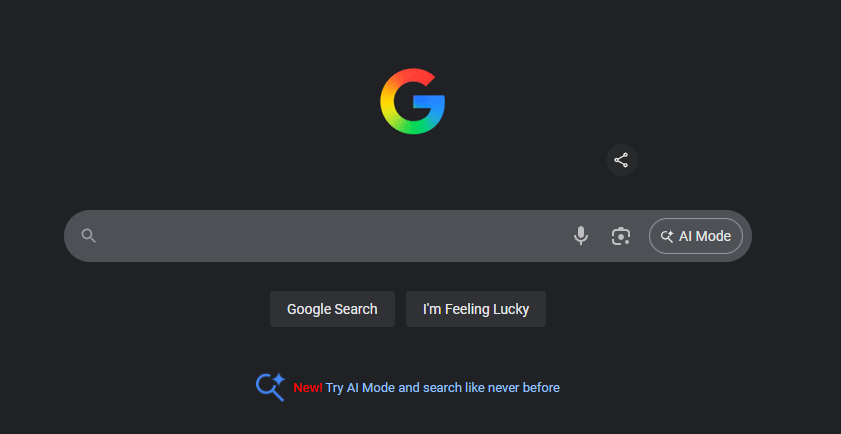Meta Money, Or, The Influencers AGI
Anyway, Meta is actually one of our highest-rated AI companies because it is in the sweet spot of (1) having clear near-term monetization ability from AI; and (2) significant trillion-dollar upside potential with its Metaverse and AGI kickers.

This is Part 6 of a series of articles breaking down and ranking the AI strategies of the Magnificent 7.
"One thing that became clearer to me in the last year is that this next generation of services requires building full general intelligence. Previously I thought that because many of the tools were social, commerce, or maybe media-oriented that it might be possible to deliver these products by solving only a subset of AI's challenges. But now it's clear that we’re going to need our models to be able to reason, plan, code, remember, and many other cognitive abilities in order to provide the best versions of the services that we envision. We've been working on general intelligence research in Facebook AI Research for more than a decade, but now general intelligence will be the theme of our product work as well." -- Mark Zuckerberg on Meta's Q4, 2023 Earnings Conference Call.
We're almost to the end of our series analyzing the AI strategies of the Mag 7.
Up next is Meta Platforms (META), with its CEO Mark Zuckerberg, who is also a wannabe influencer (ha!). It's ironic that the guy who owns the platforms that enable super-cool influencers to exist often gets trolled on the internet for his awkward social interactions (like the doctored photo above or this one from a few months back when Zuck wasn't sure what to do with his hands at a UFC event).
Anyway, Meta is actually one of our highest-rated AI companies because it is in the sweet spot of (1) having clear near-term monetization ability from AI; and (2) significant trillion-dollar upside potential with its Metaverse and AGI kickers. We think Meta has a clear path to scaling it's AI products to its nearly 4 billion monthly active users (MAUs) across its existing family of apps, and we are very excited about the company's innovative AI products like its Ray-Ban glasses and Quest VR/AR headsets. Meta is tied for second place in our AI Strategy Framework with Tesla (TSLA) and Google (GOOG).
Meta's AI History
While perhaps not traditionally considered an "AI Company," Meta has a surprisingly rich history in AI, and the company has been using machine learning in its social media algorithms for decades. In 2006, Facebook introduced the "News Feed," which was an aggregation of posts from your friends on Facebook and pages you followed. Previously, users simply searched for different users on Facebook and you had to visit each user's profile to see their posts. The original News Feed relied on Facebook's EdgeRank algorithm which displayed posts from friends based primarily on recency but also incorporated some primitive engagement metrics. By 2013, Facebook had switched entirely to a machine-learning algorithm that analyzed over 100,000 factors when ranking content and deciding which posts to show users in the Feed. Today, Facebook uses deep neural networks and complicated machine-learning algorithms to recommend content from both friends and sources outside your network. As of the first quarter, 30% of posts on the Facebook Feed and 50% of Instagram Posts were AI-recommended.
Meta has been at the cutting edge of AI research for some time now. Facebook started its Facebook AI Research (FAIR) group in 2014 in an effort to "understand the nature of intelligence so that we might create intelligent machines." FAIR is an open-sourced research lab that publishes work on all critical areas of AI, including computer vision, robotics/embodied AI (which we love, as Cody detailed in this article), machine learning, generative AI, natural language processing, speech & audio, and society & responsible AI. Further, Meta's AI research division is responsible for building Meta's AI-tailored infrastructure. This includes Meta's custom AI chips, including its Meta Training and Inference Accelerator (MTIA) chips. Those chips power Meta's 20+ data centers in the US and more overseas. Plus the company has an AI-specific training supercomputer which it calls the AI Research SuperCluster (RSC), which is one of the world's fastest supercomputers. RSC achieved 5 exaflops of computing power utilizing 16,000 NVIDIA (NVDA) A100 GPUs.
Meta is spending immense resources building advanced AI, but is taking the unique approach of open-sourcing its models. FAIR is responsible for developing Meta's open-sourced lineup of large language models, known as LLaMA (Large Language Model Meta AI). Meta released the first iteration of LLaMA in February 2023 and it's already on its third generation. By nearly all objective measures, LLaMA 3 is nearly as good as the best LLMs from Google and OpenAI, and it's free for anyone to use. We think Meta is essentially driving a race to the bottom with LLMs. We give Meta and Mark Zuckerberg a lot of props because they were early to see that the value of AI would not be in simply making LLMs. LLMs are clearly being commoditized, and we think the real value of AI is going to be in the next-generation products and services that LLMs and other forms of AI help create. Below, we discuss how Meta is already using AI to increase profitability in its social media business and what we think it will be able to do in the future.
Current Success
First, let's look at what Meta has already done with AI. There are three key drivers for Meta's social media revenue growth: (1) engagement; (2) user growth; and (3) ad placement/optimization/targeting. AI helps drive all of these. Meta sells online ads like many other businesses, and in order to sell ads, Meta needs users to spend time on its products. Users spend time on Meta apps like Facebook and Instagram if they are engaged. Users are engaged when they see interesting, funny, and relevant content on the apps.
Using AI, Meta can increasingly place better content in front of its users by analyzing massive amounts of data about each user's preferences, likes and dislikes, comments, shares, etc. AI is then able to recommend tailored content that keeps users on the platform. Instagram Reels (Meta's TikTok competitor) is perhaps the best example of this, because nearly all of the Reels you see are from accounts you do not follow. The reason that TikTok became so popular so quickly is because its algorithm was great at recommending great content. The highly-addictive nature of AI-recommended content is evidenced in the massive success of both TikTok and Instagram. This will only get better with time, and for better or worse, we think it is unlikely that people stop watching Reels or looking at the Facebook Feeds anytime soon.
For many of the same reasons, AI drives user growth. To be clear, nearly 50% of the human population is already on Meta's apps, so it's not like there is room for gangbuster growth of users at this point. But because users are now much more engaged with Instagram and Facebook, they more frequently share funny and interesting content with their friends who might not be on the platform. Moreover, higher engagement results in less churn, and therefore fewer users end up leaving the platform.
Third, in the same way that AI allows Meta to recommend better content, AI allows Meta to place more relevant ads with higher clickthrough rates. Meta reported that one of its AI-powered ad tools, Advantage+, resulted in a 28% reduction in the cost per click compared to regular targeting. This speaks to the efficiency of Meta's new targeting features.
Lastly, we think it is very likely that Meta has been able to reduce a lot more headcount than it would have without AI. Last year was Meta's "year of efficiency," but Zuck has made clear that he expects Meta will continue to be a much leaner company than it was in the past. Perhaps more than anything else, AI is really good at coding (LLaMA 3 excels at coding), which is what the majority of Meta's very-expensive employees spend their time doing. AI helps developers and engineers draft tons of code with simple text prompts. We think the productivity gains from AI may be a big contributor to why Meta has been able to increase its operating margin from 25% last year to over 40% this year.
The combined result of Meta's AI efforts has already resulted in big financial gains for the company. In the first quarter of this year, MAUs were up 7% YoY, average revenue per user was up 18%, total revenue grew 27%, and operating profits were up 91%. Using AI, we expect Meta will continue to drive further engagement, user growth, and increase profitability for years to come.
AI and Metaverse Kickers
In addition to the social media business, Meta is headlong into building out new AI products. We think there is a high probability that Meta will figure out exciting new AI and metaverse applications, services, and products that it will be able to monetize using its massive user base. We don't know what all of Meta's future AI products will look like, but we can see the writing on the wall given Meta's big advantages discussed below. And who knows what other people will build on the open-sourced metaverse and LLaMA AI platforms.
As his quote above notes, Mark Zuckerberg recognizes that Meta needs to work toward building AGI to enable the next generation of online services. One of the reasons we think Meta has an advantage in working toward AGI is the fact that it has more compute power than just about every other company on the planet besides the big cloud guys, Google (GOOG), Amazon (AMZN), and Microsoft (MSFT). But the difference between Meta and the cloud providers is that Meta is dedicating 100% of its compute power to building products for Meta. Compute is one of the scarcest commodities on the planet right now, and the cloud providers make money by renting compute to third parties to use for their own purposes. Achieving AGI is largely a function of having enough compute. And Meta (and Tesla) is investing more than almost everyone else in buying Nvidia chips and building its own AI chips.
Another reason we think Meta has a leg up in the AGI arms race is what we call its Data Feedback Flywheel. Data is often described as the "fuel" for AI, because immense amounts of data are needed to train the models in order for the models to be useful. Zuck stated in the Q4 earnings call that there are more pictures and public videos on Instagram and Facebook than in the Common Crawl dataset, which is the most commonly used dataset to train AI models. Moreover, Meta has the unique ability to collect more data and get constant feedback on its models from its billions of users. Meta built LLaMA 3 right into the search bar of its apps and also released a standalone website (Meta.ai). One of the keys to making AI better is through reinforcement learning, similar to how Google search gets constantly better because billions of people are searching on it every day. Every time someone does a search and clicks a link, Google can refine its algorithm to ensure it is providing the most relevant content. Meta can now do that with its AI models, and at a scale that is equal to or greater than Google!
As the name suggests, Meta also has a metaverse kicker (by the way, the metaverse is defined as a "virtual-reality space in which users can interact with a computer-generated environment and other users"). Meta has been working on building products for the metaverse since it acquired Oculus in 2014. Meta released its first Ray-Ban smart glasses in 2021, and it updated those glasses with an AI-powered assistant late last year. During the most recent earnings call, Mark Zuckerberg explained why glasses and headsets are a better form factor for AI:
"Glasses are the ideal device for an AI assistant because you can let them see what you see and hear what you hear, so they have full context on what's going on around you as they help you with whatever you're trying to do."
-Mark Zuckerberg in the Q1'24 Earnings Conference Call.
Despite many years of work and a lot of R&D capital, Meta still isn't generating much revenue from its Meta Quest VR headsets or Ray-Ban glasses. However, we think that a big part of what was missing was the AI. Now that AI has caught up, the headsets and glasses are going to be a lot more useful for consumers. If you watched either the OpenAI Spring Update or Google's I/O events this week, you probably noticed the significant upgrades the companies made with their vision-based models. Now, both ChatGPT and Gemini can see what you see and provide helpful commentary in real-time. As amazing as smartphones are, they are a bit awkward to hold and point at things with the camera running. It's much more natural to simply have AI-powered glasses that see and hear everything you do. Meta is just getting started with these new devices and if AI makes these devices as useful as we think they might, then this is another trillion-dollar kicker for Meta.
Conclusion
Meta has done a great job of monetizing AI already and they have big plans for AI in the future. We are quite possibly seeing a merger of two of Meta's big bets – the metaverse and AI – come together to form what might be incredibly Revolutionary products. Meta already has a great path to continue to monetize its unrivaled social media business, and if its future AI and metaverse bets can start to generate real returns, then we think there is an order of magnitude or two room to the upside from here.





